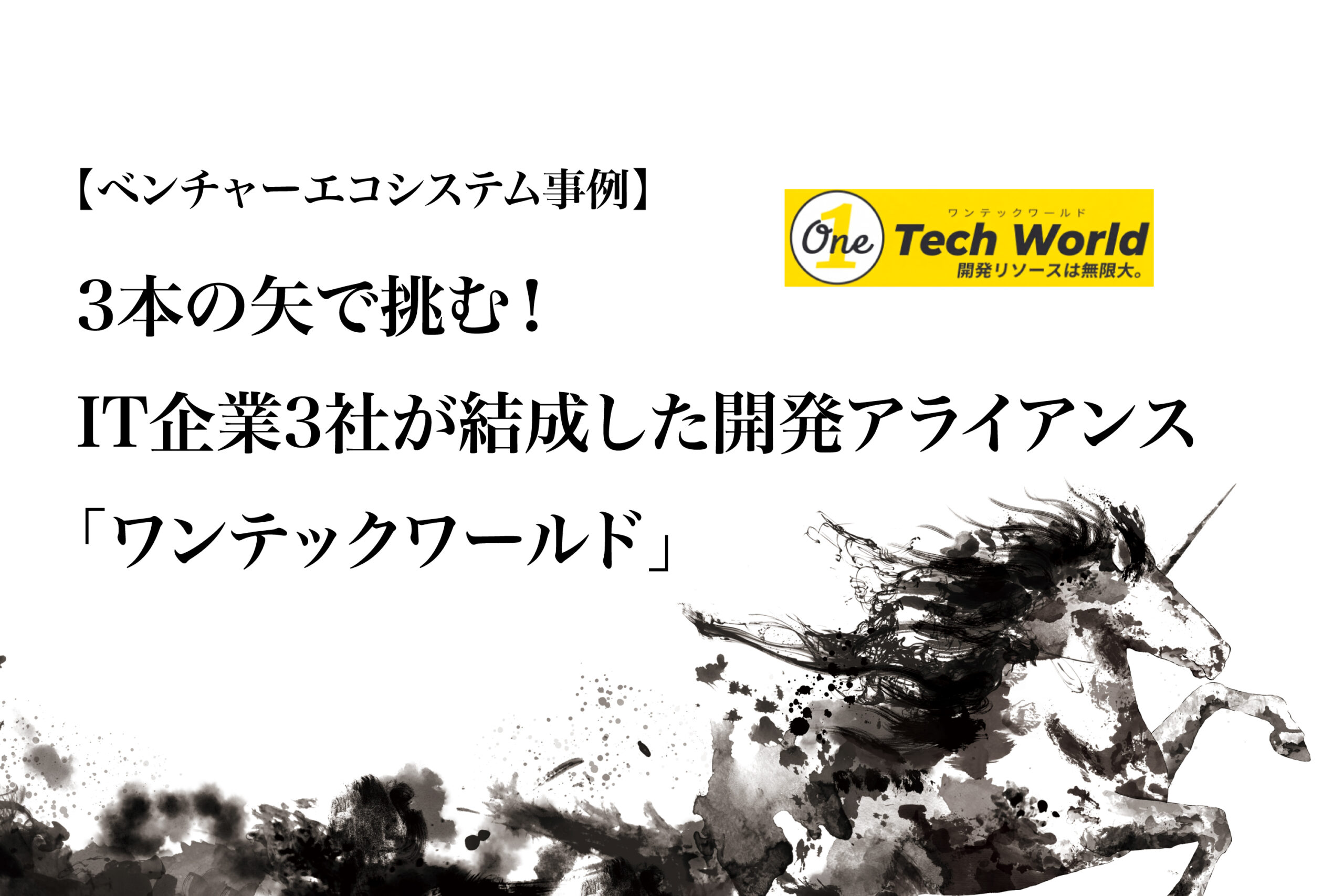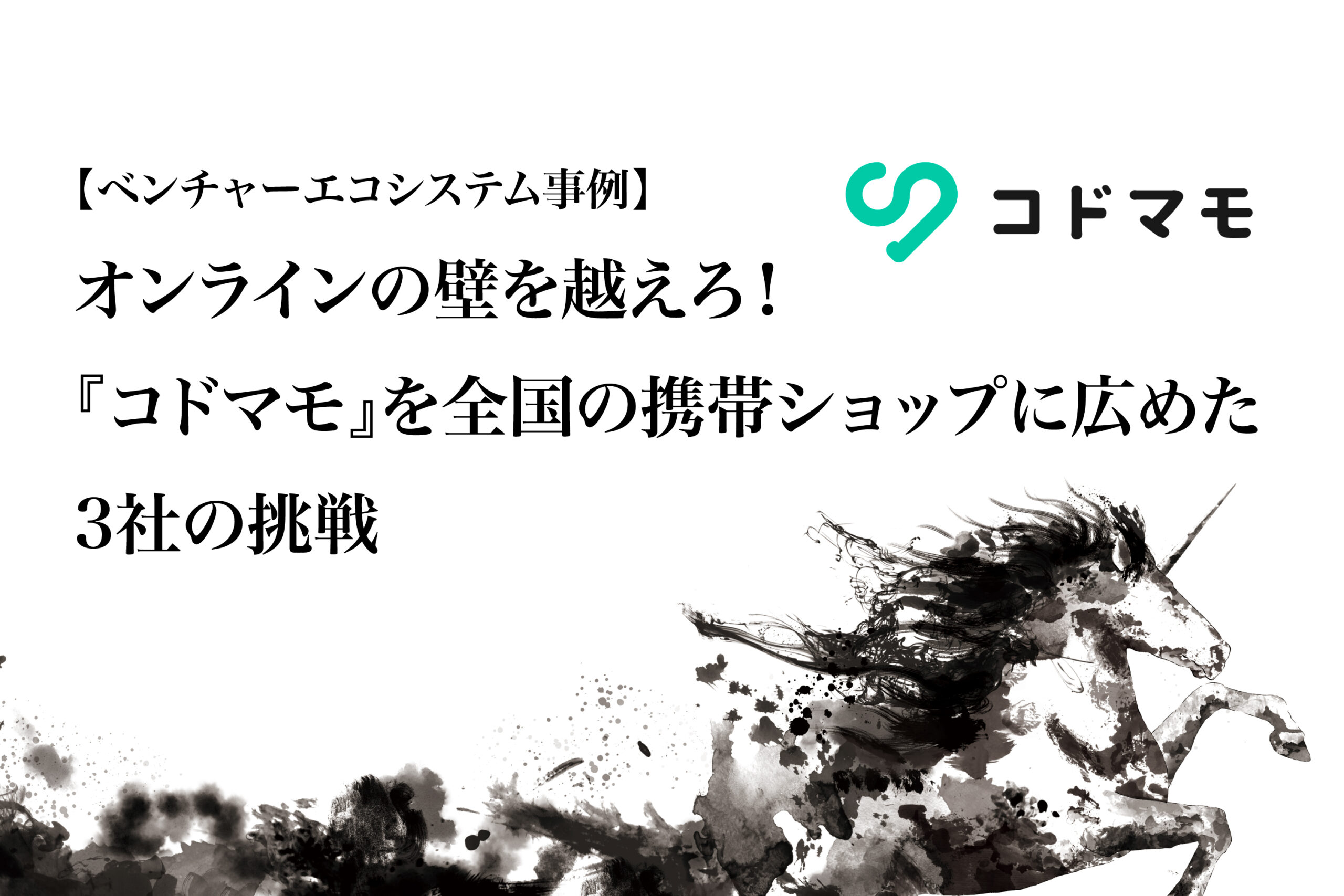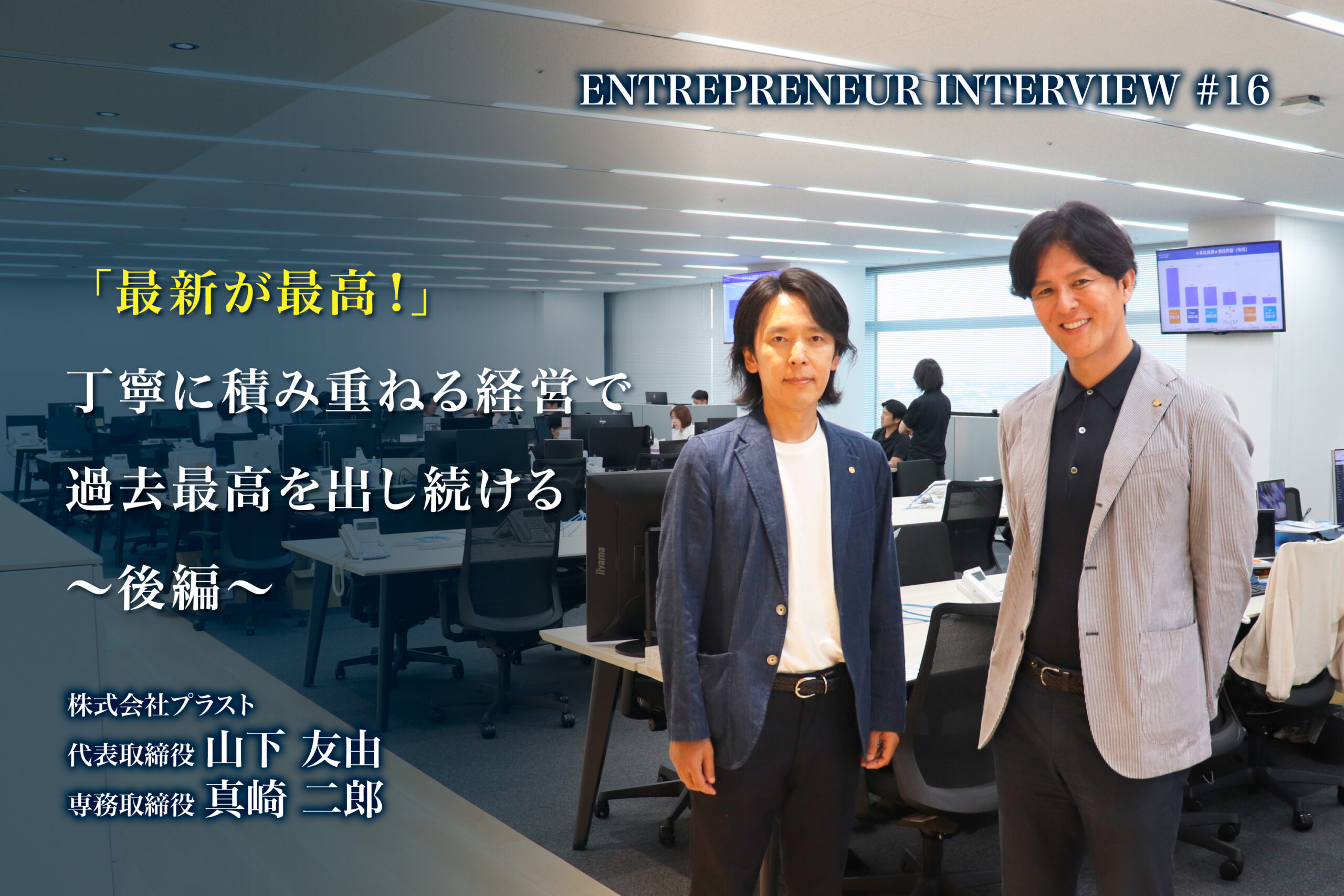
“Serve people and cultivate talent”
Aim for further growth through developing human resources and systematization!
D-POPS GROUP has 23 group companies that we call partners (at the time of publication).
For this article, we interviewed Shoto Masuda, the current CEO of D-POPS Corp., the founding business of D-POPS GROUP.
(This interview was conducted in March 2025.)
This is the latter part of the interview. To read the first part, click here.
◆The Market Environment
Sugihara:
It seems that the business model of selling smartphones in physical stores is facing headwinds, given the increase in direct sales by carriers and manufacturers via e-commerce, as well as the growing market in different industries for buying and selling used devices. Could you share some aspects of your strategy in this market situation?
Masuda:
For about the past year, we’ve been heavily discussing our future strategy. We have many excellent existing businesses. Because they are directly connected to people’s daily lives, the products and services we handle are very attractive, I believe. However, on the other hand, when you’re in the position of an agency, control and management become incredibly difficult, so I really feel that balancing these aspects is extremely challenging.
Regarding our strategy moving forward, it’s still fundamentally about telecommunications. While it’s quite broad to say telecommunications as a whole, there are many more products that we should really be selling. We will expand our product lineup to include items developed in-house and procured externally. Selling core products and cross-sellable products will be one of our first courses of action.
Another plan is user life design. In essence, we are focusing our discussions on what people need for their daily lives and what problems need solving. This applies to our stores, and we’re also currently exploring if there's anything we can get involved in even without a physical store presence.
Sugihara:
Speaking of which, how is the “Smartphone Consultation Counter” business doing?
Masuda:
It’s growing steadily. It took a long time for feature phones and smartphones to penetrate into the Japanese market, but they have been fully received now. However, going forward, the products that come out, such as 5G and certainly 6G, and now even AI-equipped smartphones, are becoming so complex that many people don't know how to use them.
For instance, people might not know how to use LINE, or how to link their My Number card, or how to connect IoT products to their home appliances. While devices have become widespread, many people don’t know how to use them, so we really want to address these customer needs, both in person and online.
Sugihara:
More and more people who are not tech-savvy, especially seniors, are finding themselves with no one to consult. Such individuals can run to a TOP1 store to address their concerns. So it seems there really are people who want to receive advice, even if they have to pay a fee.
Masuda:
That’s right. We used to do it on a volunteer basis, but we need to distinguish our business, and as we improve the skills of our staff, their wages also need to increase. So, we believe it’s better to charge a fee so that we can serve customers as professionals. We are also developing that service and are focused on continuously improving its quality.
The third and final point is education. When I think back to what we most wanted to do since our founding, and what our strength still is today, it’s educating our human resources. The original vision of President Goto, the founder of D-POPS, was to create opportunities for young people. Although I’ve taken over as CEO, we’re still holding onto that vision, so at our core, we’re ultimately about educating people. In the end, we've committed to “cultivating talent”, so I believe that embedded in our company’s DNA is the idea of raising up “leaders equipped with both integrity and skill”, which also continues to be our human resource development policy as our business grows and evolves.
In 2024, I had the opportunity to go abroad with Dr. Semmoto, the Chairman of D-POPS GROUP’s Board of Directors, and I realized that while some other countries have growing populations, the quality of Japan as a nation in various aspects is remarkably high. For example, I believe we can convey the high value of Japanese education, culture, and customer-focused service.
Recently, as we’ve been brainstorming various ideas, we’ve gone back to our roots, asking: “What kind of company is D-POPS?” The answer is, “We are a company that develops human resources.” To make people genuinely excited and want to join D-POPS or work for us, I felt it was necessary to grow our business domains and to help individuals grow, making them believe that joining will lead to their personal development.
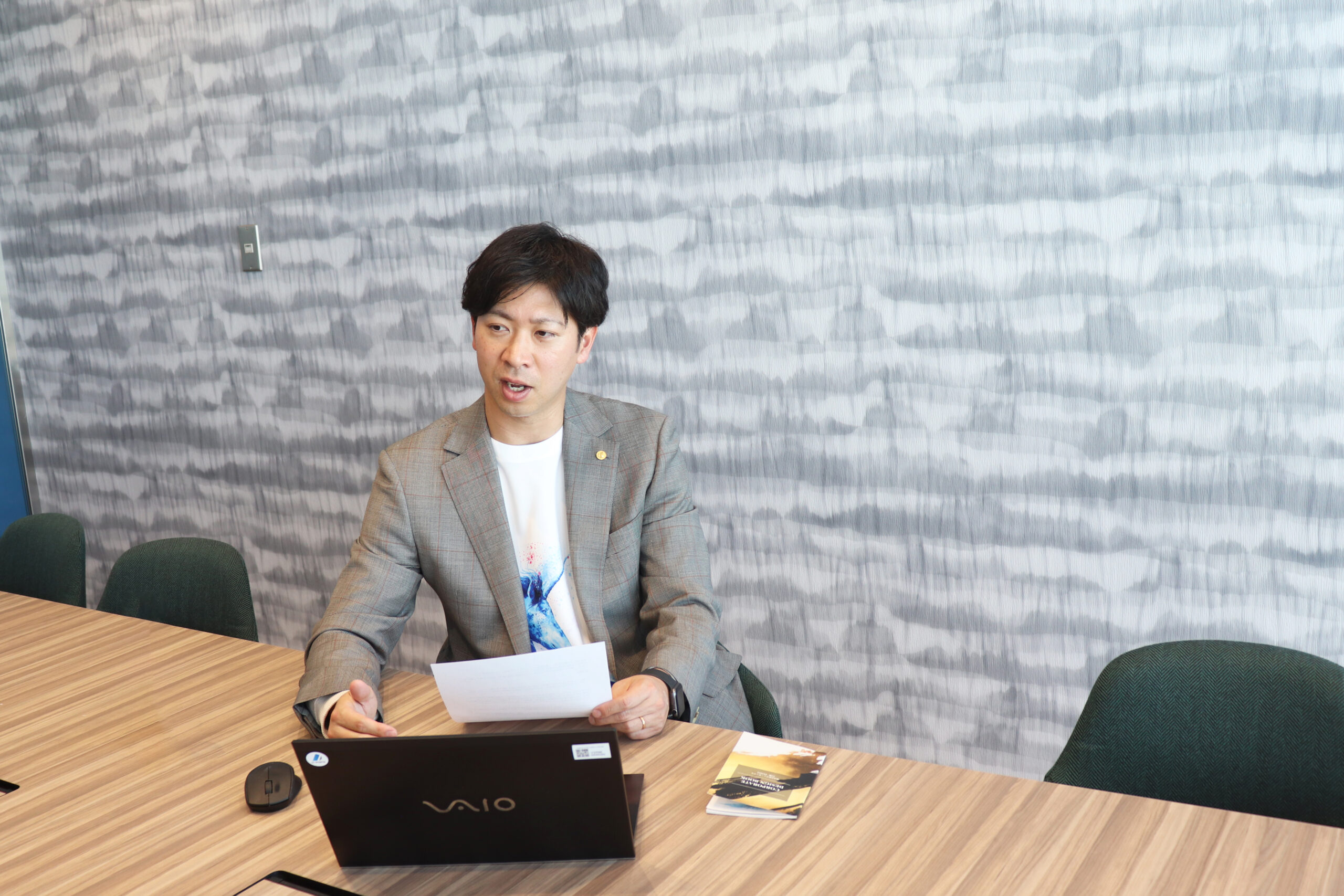
◆TOP1’s Policies for Sales and Proactivity
Sugihara:
Personally, when I picture mobile phone agencies in the past, I think, “Purely commission-based meritocracy!” What kind of sales and customer service policies does D-POPS’s own brand shop, TOP1, have?
Masuda:
Whether to compete purely on meritocracy or to prioritize meticulous sales and customer service—this is indeed the most challenging aspect. The truth is, when you chase sheer numbers, quality inevitably declines. That's why the industry as a whole has seen many compliance violations. However, no matter how good your intentions, if you don’t achieve results, you won’t get support, will you?
Therefore, I believe it’s crucial to combine building a strong sales organization with education of the mind, which necessitates instilling our philosophy and vision. We believe that we are a company that properly educates its people and contributes meaningfully to those important individuals with whom we have connections, so we must continuously improve our quality. Essentially, it’s about whether we can establish a foundation of trust in human relationships and then build specialized skills and a favorable business environment upon that.
There were many companies in the past that lacked this foundation. Those companies sold enormous volumes. They had high transient revenues and contributed more in terms of numbers than we did, but they no longer exist today.
However, we need to increase both customer numbers and sales while simultaneously improving quality. So, we are working to strengthen this across the entire organization and aim for growth.
◆New Product “OTHEBES”
Sugihara:
So that’s why your philosophy-driven management and training truly come to life. It’s not just about the sales method; it’s because the staff, having gone through that philosophy training, are providing a service which enables them to support customers’ lives, lifestyle, and life design. I heard that as a future strategy, you’re launching a brand called “OTHEBES” to strengthen your customer base. Could you tell us more specifically about OTHEBES?
Masuda:
“OTHEBES” was launched in March. Led by Mr. Sakamaki, our Executive Officer and General Manager of Sales who is also in charge of product and business development, the first phase involves Wi-Fi rental and sales. OTHEBES is a portmanteau of “others” and “best”. While we have existing stores and products, there are still gaps where current products don't quite resonate with or contribute to end-users, and OTHEBES is designed to fill those gaps.
Currently, for the first phase, we’re handling Wi-Fi. In the future, for example, some people only use their phone for calls, so we want to create our own brand of call-only mobile phones, plus develop combinations that pick the best aspects of different services. Recently, a slogan has emerged among us: “Create something new out of what already exists!” So, we are now analyzing the demands from both the field and customers, considering combinations that we believe will work.
Sugihara:
Both in terms of planning and on the ground, with the increasing number of products, carriers, hardware, and brands you handle, and your company’s own services appearing, there’s a risk that sales staff who lack initiative might not know what to propose to customers. Are you concerned about that?
Masuda:
That’s why we prioritize foundational education. In fact, D-POPS didn't have many established systems until now. So, from here on, our theme for this year is to create proper systems, and based on the premise that people forget, we aim to create systems that can convey information more simply, rather than just forcing memorization.
It’s all about human resource development and systematization. If a company can just put the right people in the right places and clearly divide roles, there’s no way they can fail, ha ha.
◆Soccer Activities
Sugihara:
Nice! I love that kind of attitude! Changing the subject completely, I hear you are quite skilled at soccer! And that you’re active in the company’s futsal club. Could you tell us about these activities?
Masuda:
I’ve played soccer continuously since my school days, and I’ve kept it up as a hobby even after entering the working world.
Initially, it was just an in-house club activity at D-POPS. We play about once a month internally, and since I have various connections, I also play with external members. I probably belong to about three or four main groups.
When we focused only on in-house members, we were always just barely scraping by with enough players. We wanted to play but couldn’t. At that time, it suddenly occurred to me: what if we brought in people from both inside and outside the company? So, we started doing that. We organize the games, inviting our employees and other members of D-POPS GROUP to join, plus my acquaintances, some of whom are former professional players.
We also forged a connection with BLUEISH Inc. through soccer, a company in which D-POPS GROUP later made a corporate investment. This made me realize that sports can create such networking opportunities.
*See the full press release here:
D-POPS GROUP Invests in BLUEISH Inc., Operator of Industry-Specific AI Workflow “Omni Workspace”
Until now, my life has been pretty much full of those kinds of connections. I attended the Semmoto Management School run by Dr. Semmoto, and there I met another company’s board director who also played soccer. That director turned out to be a high school classmate of a former manager of mine from Germany, who had really helped me out during my time living in Beijing. I really hit it off with that director, started attending the soccer practices he participated in, and that's where I met the people from BLUEISH.
But I also think this involves luck and timing. If this had happened five years earlier, I don’t think the discussion about investment would have occurred. I myself have had various experiences up to now, and being in a management position allows me to engage in various conversations, which enabled me to bring this opportunity to D-POPS GROUP.
I mentioned playing with external people earlier; there are also skilled individuals among my acquaintances who are business owners, or even executives and younger employees within their companies. And typically, those people also excel at work. It’s like things just connect. That’s incredibly valuable, isn’t it?
When people have good character, shared interests that foster friendship, and different expertise, skills, and networks, it leads to a wide range of connections.
◆Recruiting Students
Sugihara:
It’s the time of year when job hunting for students graduating next year has begun. What type of student would you like to see join D-POPS? And what aspects of D-POPS do you think are attractive points for new graduates?
Masuda:
Our company, first and foremost, has genuinely good people. They have high self-esteem and are very proactive. They also tend to reach out to others and have a strong sense of contribution.
Furthermore, in D-POPS and D-POPS GROUP currently, we offer an environment where you can leverage support and coaching for experience, skills, and networking. I truly believe there’s no better environment than this. So, for those who want to challenge themselves quickly, gain not just knowledge but also practical skills, and refine their human qualities, ultimately, we’d like them to take on management roles.
We don’t really prioritize academic background. However, it’s absolutely crucial to have high self-esteem. I think it would be difficult for both of us if an employee is consistently negative. If you think to yourself, “I can’t do this”, then you won’t be able to achieve anything.
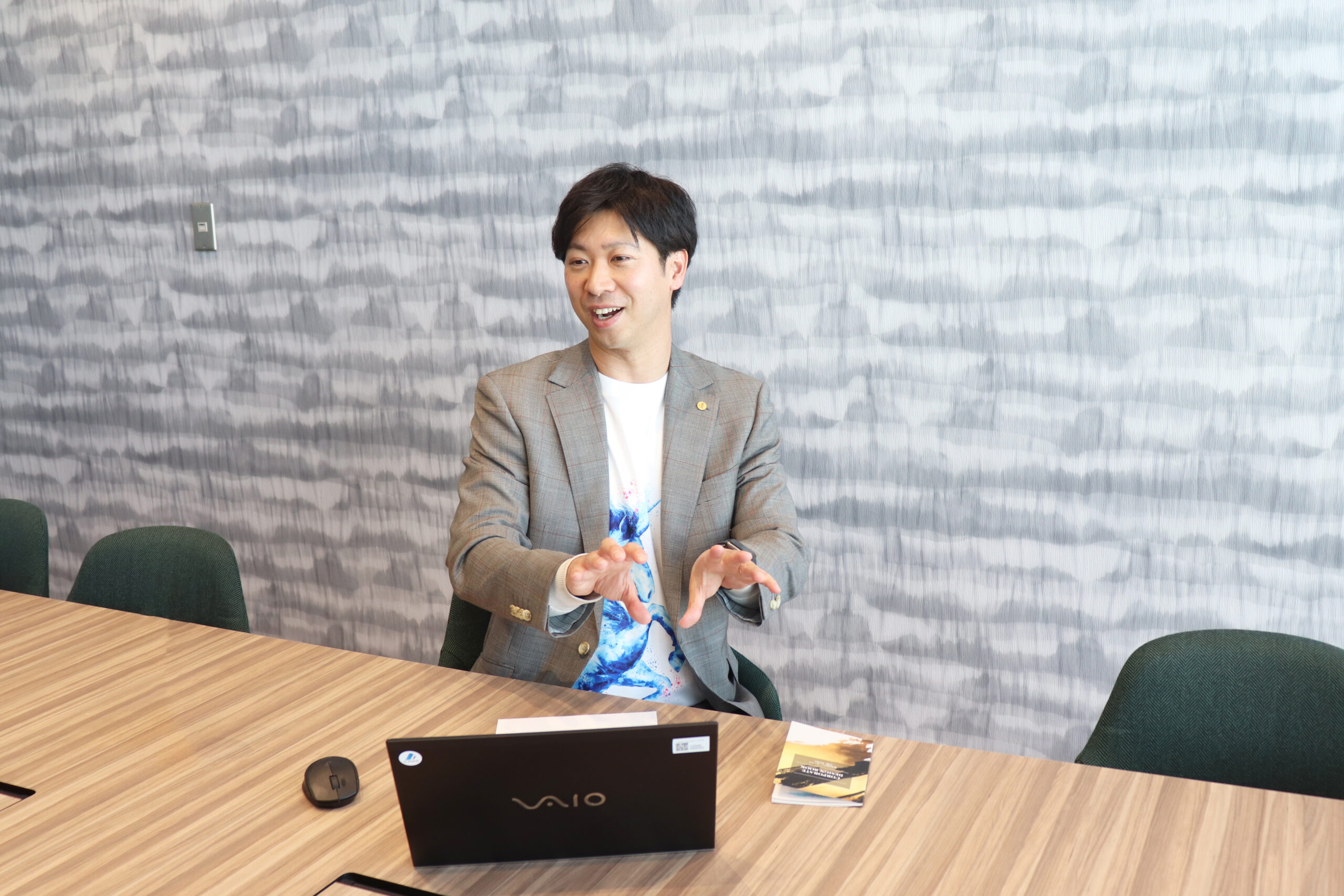
◆“Realizing a Venture Ecosystem”
Sugihara:
D-POPS GROUP has the motto of “Realizing a Venture Ecosystem”. What aspects of this goal do you resonate with? Are there any activities you’re undertaking with the creation of a Venture Ecosystem in mind?
Masuda:
I believe this ecosystem is essential for living. The truth is, people cannot live alone, and their lives definitely change depending on who they spend time with and the differences in insights they gain. Moreover, the sooner this happens, the better. I think things can change even if it’s late, but realizing things as early as possible leads to making the right choices.
Therefore, I personally feel that a Venture Ecosystem is indispensable. Within the D-POPS GROUP community, there are many people whom I’d want to meet even if it meant spending my own time and money. So, I think getting to join a Venture Ecosystem like this—and even getting paid to do it through working for the group—is quite an extraordinary opportunity.
I want people to clearly recognize that it isn’t enough to simply show up. How you choose to act is up to you. It would be great if a group could form where people don’t just exist within the community, but actively initiate things themselves—whether it’s asking for guidance or contributing their own expertise.
◆Ideal Vision for D-POPS in 5 Years
Sugihara:
That’s wonderful! Now, could you tell us your ideal vision for D-POPS as a company and for yourself five years from now?
Masuda:
First and foremost, the company will have grown significantly. And I believe we will certainly have established a stage where we can better support customers’ life designs and employees’ self-realization within five years. We aim to expand this both domestically and internationally.
I view this as a personal mission or message for myself: I want to ask myself, from a larger, global perspective, what do I need to do? I’m currently having various discussions while considering that. I believe the execution phase for that will be this year and next, so the company will likely undergo a significant transformation.
Sugihara:
That sounds promising. Now, are there any challenges you face in moving toward that future?
Masuda:
For Japan, it’ll definitely be the severe labor shortage. I have three children now, but when they grow up, in 20 or 30 years, the population will have decreased considerably, won’t it? When the population potentially drops to around 80 million, the question will become to what extent Japan’s culture and values, cultivated until now, can be transmitted and passed down.
So, I think it’s about whether we can continue to impart education, not just to Japanese citizens, but also to foreigners.
Another challenge, though it’s currently unclear, is nature itself. Among the challenges I’m currently taking on, I see existing businesses, information, and telecommunications as one aspect, then personal development for individuals as another, and finally, environmental conservation. What exactly we can do is not yet clear, but I am gathering information on it.
◆Message to Readers Visiting Our Website
Sugihara:
Finally, in closing, could you share a message for our online readers?
Masuda:
I believe our Venture Ecosystem is not just an ecosystem of startup companies, but an ecosystem containing groups of professionals driven by an intense spirit of altruism. I think there’s already something you can see and feel by simply looking at it. If you find something appealing or interesting after checking it out, I sincerely hope you’ll take the next step. We look forward to meeting you directly, and we would be delighted if you could contact us.
Interview conducted by D-POPS GROUP’s advisor Genta Sugihara.
D-POPS Corp.
Company President and CEO: Shoto Masuda
Address: Shibuya Hikarie Bldg. 32F, 2-21-1 Shibuya, Shibuya-ku, Tokyo
Established: February 1998
Website: https://d-pops.co.jp/




